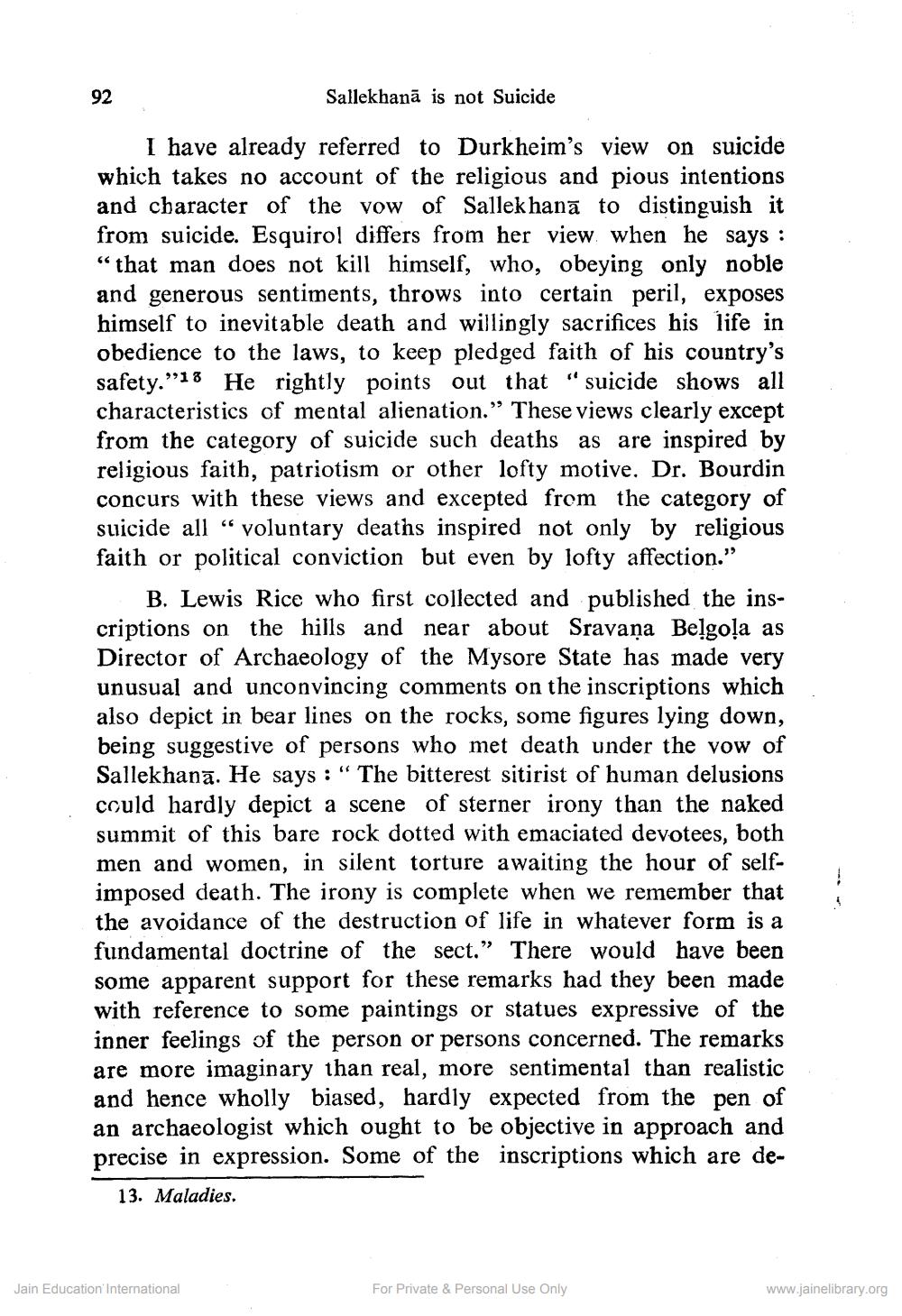________________
92
Sallekhanā is not Suicide
I have already referred to Durkheim's view on suicide which takes no account of the religious and pious intentions and character of the vow of Sallek hanā to distinguish it from suicide. Esquirol differs from her view. when he says : “that man does not kill himself, who, obeying only noble and generous sentiments, throws into certain peril, exposes himself to inevitable death and willingly sacrifices his life in obedience to the laws, to keep pledged faith of his country's safety."18 He rightly points out that suicide shows all characteristics of mental alienation." These views clearly except from the category of suicide such deaths as are inspired by religious faith, patriotism or other lofty motive. Dr. Bourdin concurs with these views and excepted from the category of suicide all“ voluntary deaths inspired not only by religious faith or political conviction but even by lofty affection."
B. Lewis Rice who first collected and published the inscriptions on the hills and near about Sravaņa Belgoļa as Director of Archaeology of the Mysore State has made very unusual and unconvincing comments on the inscriptions which also depict in bear lines on the rocks, some figures lying down, being suggestive of persons who met death under the vow of Sallekhana. He says : “ The bitterest sitirist of human delusions could hardly depict a scene of sterner irony than the naked summit of this bare rock dotted with emaciated devotees, both men and women, in silent torture awaiting the hour of selfimposed death. The irony is complete when we remember that the avoidance of the destruction of life in whatever form is a fundamental doctrine of the sect." There would have been some apparent support for these remarks had they been made with reference to some paintings or statues expressive of the inner feelings of the person or persons concerned. The remarks are more imaginary than real, more sentimental than realistic and hence wholly biased, hardly expected from the pen of an archaeologist which ought to be objective in approach and precise in expression. Some of the inscriptions which are de
13. Maladies.
Jain Education International
For Private & Personal Use Only
www.jainelibrary.org




